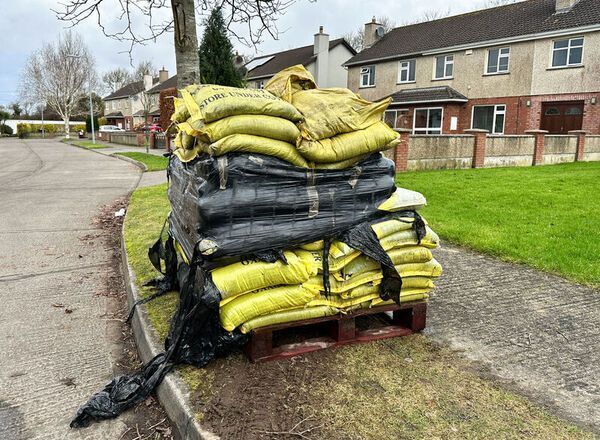Thirty-nine years later, the guard dog wakes up and starts barking. So what's he barking at: the old event, or a new one? In 1972, a widowed mother of ten children was taken from her Divis Flats home in west Belfast by a group of masked kidnappers.
Jean McConville's family never saw her alive again. The Provisional IRA had suspected McConville of working as an informant for the British army, and no one really disputes how she met her end.
A few weeks after she was taken away, a visitor delivered her purse and jewelry to her children, a message that she had been killed. Her body wasn't found until 2003, buried on a beach on the other side of the border with a gunshot wound to theback of the head.
McConville's disappearance and death met with no apparent response. In 2006, pressured by McConville's children, the ombudsman for the Police Service of Northern Ireland looked into the actions of the Police Service of Northern Ireland's predecessor agency, the Royal Ulster Constabulary, and found almost nothing: no substantial paper trail, no effort, no sign of an investigation.
In the madness of the Troubles, one suspected informer's murder went unremarked, her children taken into state care as having been, in the words of a welfare agency report, "deserted by mother."
Responding to the ombudsman's report, the chief constable of the PSNI acknowledged that the police failure was probably irreparable: "Any case of that age, it is highly unlikely that a successful prosecution could be mounted."
Suddenly, though, the PSNI is investigating McConville's long-ignored murder, with newfound urgency, remarkable timing, and an unexpected shift in location.
Jean McConville was taken in Belfast and buried in County Louth, but her murder is being investigated in Boston. The apparent evidence is in Boston because of an act of trust, or rather several acts of trust.
After the Belfast Agreement of 1998 led the Provisional IRA to renounce armed struggle and eventually lay down its arms, a project at Boston College's Center for Irish Programs sought to record the memories of the men and women who fought in a conflict that appeared to be coming to an end.
Oral history interviewers recorded frank discussions with the members of paramilitaries from both sides, loyalist and republican.
Two things got people to talk. First, the interviewers themselves were hired from the ranks of the paramilitaries with the interviews of PIRA members being conducted by Anthony McIntyre, who had spent 18 years in Long Kesh before earning his PhD in history.
Second, the interviewers promised confidentiality to the people who sat down with them, assuring them that the tapes and transcripts of their interviews would be held until after their deaths.
That promise of confidentiality was secure for a decade. In 2008, former PIRA Belfast commander Brendan Hughes died, and his interview materials were made available to researchers, in accordance with the promise of lifetime confidentiality.
Other interviews remained under embargo, locked in a safe and not available for review.
The Irish journalist, Ed Moloney, used the Hughes tapes for his 2010 book, "Voices from the Grave," which included Hughes's highly charged allegation that Sinn Féin leader Gerry Adams had approved McConville's murder in hiscapacity as a PIRA commanding officer.
Of course, Adams has always and entirely denied PIRA membership, much less a role as a commander in the armed struggle against British rule.
That same year, an Irish newspaper printed an interview with another former PIRA member, Dolours Price, in which she also talked about McConville's murder.
Like Hughes, Price said that Adams had been the PIRA commander under whose authority the killing had been done.
But still, McConville's murder inspired no apparent police interest. The 2006 ombudsman's report had not sparked an investigation of a murder that no one had ever cared to solve, and neither did the 2010 book or newspaper interview.
A long-ignored crime continued to be ignored.
Then, a few months ago, the police in Northern Ireland suddenly started caring about Jean McConville's 1972 murder. The first public sign of that interest came from a very strange place: the U.S. Attorney's Office for the District of Massachusetts.
In March, federal prosecutors went to court asking for subpoenas that would allow them access to the interviews that Boston College researchers had taped with Hughes and Price. The Department of Justice presented its request to the districtcourt as a straightforward effort to help police overseas solve a murder, an action that governments now routinely perform under the terms of mutual legal assistance treaties, or MLATs.
Following the terms of the MLAT between the United States and the United Kingdom, prosecutors here tried to maintain the confidentiality of their request, filing it under seal. But Boston College filed a public response, and the secret was out.
So now we have an enormously strange chronology: a 1972 murder that was acknowledged to be unsolvable in 2006, with damning allegations made public but not investigated in 2010, but suddenly being investigated in March of 2011.
Why the sudden interest? The PSNI and Department of Justice aren't answering questions from journalists about their pursuit of the records at Boston College, leaving outsiders to guess at their intentions.
But a curious bit of timing helps with the guesswork: the PSNI suddenly discovered itself to be interested in Jean McConville's decades-old uninvestigated murder at the very moment that Gerry Adams moved south and won a seat in the Dáil, thus bringing Sinn Féin with him to a newfound political standing in the Republic of Ireland.
It suddenly became an urgent matter to prove Adams's role in a 1972 murder just as he took a seat in the Irish parliament. The Irish election took place on February 25. Court records show that federal prosecutors walked into court inBoston with their request for subpoenas on March 30, leaving a month in between for the PSNI to present its request and the Department of Justice to ready the paperwork.
Ignored for nearly forty years, then suddenly an open investigation. The timing points to politics, not policing.
This is a story with no end, yet, as Boston College's lawyer fights the subpoena for the Dolours Price interview in court. (The Brendan Hughes interview material has already been turned over, the promise of confidentiality having ended with his death).
Both sides have traded a series of briefs arguing the meaning of the law and the US-UK legal assistance treaty, with no response yet from the court.
But while police in Northern Ireland work through American prosecutors to secure an interview that will almost certainly be unusable in court as a pile of unsworn hearsay, the damage of this effort is very real.
In Ireland, an independent agency searching for bodies of the disappeared from the Troubles has warned in recent days that informants have become wary about giving information. While the Independent Commission for the Location of Victims' Remains promises confidentiality to people who come forward to help them locate graves, so did the interviewers at Boston College.
The apparent weakness of one promise of confidentiality is rendering the other untenable. Can secrets be kept, or not? In the United States, meanwhile, academic researchers are warning that a breached promise of confidentiality in one project threatens the viability of oral history as a field, especially as a field that can examine controversial topics. Ifinterviews can end up in the hands of the police or in court, who would ever agree to give an interview?
But finally, the very idea of reconciliation is at stake. After decades of armed conflict, the paramilitaries in Northern Ireland agreed to lay down their arms and try to make a lasting peace. That agreement implied good faith, and demanded it in return.
Now, with the decades-old and previously uninvestigated McConville murder, the PSNI is digging into precisely half the past. Approaching a collection of interviews with loyalist and republican paramilitary members, investigators are trying to compel the release of precisely two interviews, both from former PIRA members, that are both likely to damn the longtime leader of Sinn Féin.
And for that, the PSNI should be forced to explain itself.
Chris Bray is a PhD candidate in the History Department at UCLA, and also a former United States Army soldier and journalist. His particular study of the Boston College case stems from his interest in the protection of research and the right of free inquiry.









